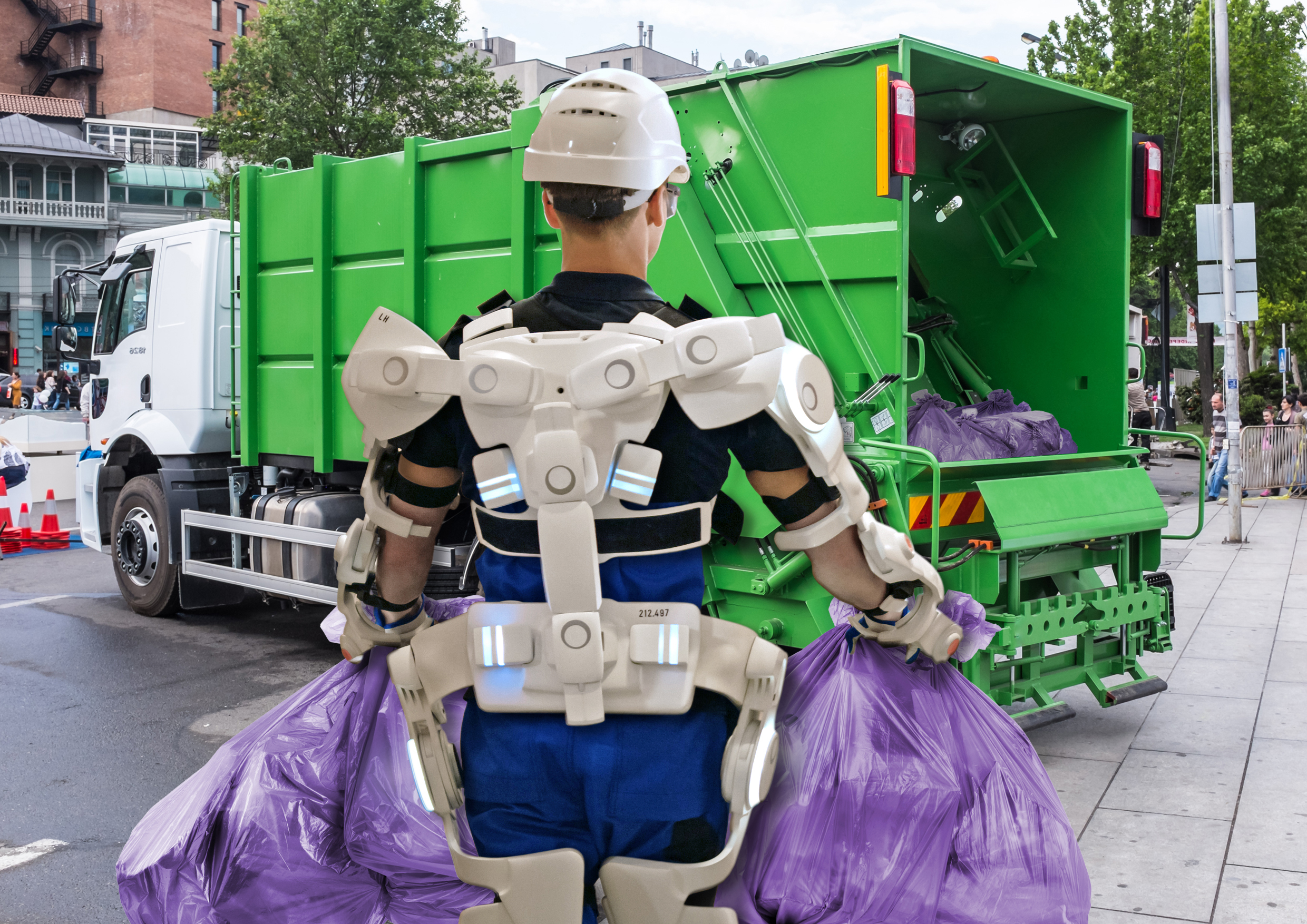Milan, 11 October 2023 - Exoskeletons and wearable technology as a valuable tool to improve the health and well-being of waste collection workers. Partitalia, an Italian tech company with the mission of revolutionising waste collection through state-of-the-art IoT and RFID technology solutions, in collaboration with the "Technology and Design for Healthcare (TeDH)" laboratory of the Politecnico di Milano, has explored the opportunities offered by these new research fields. The results of the study will be presented by the Lainate-based ICT company at the ISWA World Congress 2023, the flagship event of the International Solid Waste Association, which brings together professionals and academics from around the world. The 2023 edition is scheduled to take place in Muscat, Oman, from 30 October to 1 November.
Risks related to the work activity of collection operators
Starting from the objective fact that waste collection is a physically demanding activity - causing most of related musculoskeletal disorders, according to the 'Supporting HSE improvement' report - the risks for the waste collector were analysed.
Indeed, several factors and work circumstances affect the health and safety of workers in this sector. Among them are lifting heavy loads, activities and tasks repeated over a long period of time, reduced time for recovery and rest. Neglect of risks leads to the development of chronic physical injuries and illnesses.
Wearable to monitor the health status of workers
Wearable technologies include a range of devices designed and developed to be placed in contact with the body or worn. Wearable technologies include exoskeletons, which enhance and simplify certain human functions.
These wearable systems improve the normal performance of required tasks. In particular, for the assessment of MSDs (Work-Related Musculoskeletal Disorders), the following are used today: functional assessment, monitoring simple and complex activities, and wearable 'motion capture' technologies, recording the movement of people and objects. An example is wearable actigraphy, one of the main diagnostic tests for the study of sleep.
In the research conducted with the Politecnico di Milano, the physiological assessment was supplemented with diagnostic examinations such as ECG (Electrocardiogram) and EMG (Electromyography): this made it possible to obtain a comprehensive assessment of the health status of waste collection operators.
Exoskeletons to support collection operators
Exoskeletons are wearable systems and structures that can support or rehabilitate weakened or lost functions. They are a valuable aid to the work of ecological workers. 'We have analysed and explored active and passive solutions to verify the need for and ability to support work activities, with different levels of intensity,' explains Giuseppe Andreoni, Full Professor and Coordinator of the TeDH Laboratory at the Politecnico di Milano, which is working on the exoskeleton project. 'These are complex solutions that include different aspects: design, mechatronics, materials, sensors and software. The current challenge is to design wearable devices can meet the needs of the workplace and safety requirements, avoid interference with other elements of the system and support work activities.'
Thanks to the application of wearable systems in ergonomics, it will be possible to identify and assess possible MSDs, redesign workplaces, tools and tasks. And, again, prevent or mitigate a variety of risks, improving not only safety but also the health of workers.


